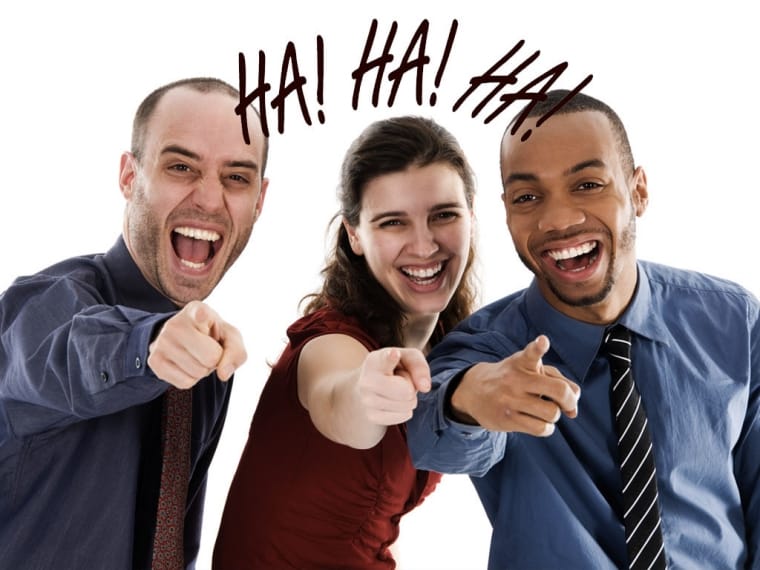By Micah Prussack, Campaigns Intern
Humor has long been used as a positive social tool, helping to bridge gaps between communities, share information, and understand the world. However, it has the potential to negative as well. Jokes at the expense of the LGBTQ community, which are often labeled reductively as “gay jokes,” can be funny. But they are often discriminatory and destructive, serving as a reproduction of oppressive social norms that have haunted the LGBTQ community for generations. Jokes at the expense of the LGBTQ community are just one example of the negative potential of humor, but this is connected to a larger struggle.
Collective liberation is the recognition that all of our struggles and identities are intimately connected, and that working together is necessary to create a better world. It is the belief that every person is worthy of dignity and respect and that, within systems of oppression, everyone suffers. What’s so funny about that? And what does it have to do with media, comedy, and non-LGBTQ people making a joke at the expense of the LGBTQ community? The answer is something that is often described as “punching down.”
The ideas of “punching down” and “punching up” are useful in understanding how to tell a joke about a vulnerable identity or community. The distinction between the two allows for a nuanced discussion about these kinds of jokes, rather than applying a blanket ethics of “good” or “bad” and calling it a day. As is often the case, the distinction comes down to social privilege. Jokes at someone’s expense can be funny– this piece is not meant to be prescriptive. However, it is crucial to consider the context and consequences of a joke. Punching down might seem harmless, but it has far-reaching and dangerous implications.
One popular framework that describes the ways that a joke that punches down can perpetuate discrimination is the discrimination pyramid. The discrimination pyramid is often used in the social sciences to describe the ways that attitudes create beliefs, which create verbal expressions of biases (including bigoted jokes), which eventually serve to further interpersonal and social experiences of violence and oppression. Punchlines don’t have to be at LGBTQ people’s expense in this way–they might be about LGBTQ people. Calling attention to the jacked up systems that keep LGBTQ people unequal can still be funny. While this might seem to have a lot to do with the content of the joke itself, it’s also important to consider who is telling it.
Punching up can be understood as a subversive act by a vulnerable person in the face of violence and oppression. But the same joke told by someone who is not subject to the kind of oppression the joke references radically alters its meaning. Not everybody is the same, and we need to acknowledge that we all move through the world differently.
The bottom line is that it just isn’t all that funny to perpetuate systemic oppression. This statement isn’t oppressing the cisgender or straight people of the world by asking them to take a second of their time to think about the consequences of their joke, and how their identity figures into those consequences. It’s lazy to do otherwise. Jokes that punch down are both a symptom and reproduction of kinds of oppression that do not apply to the person telling the joke.
The LGBTQ community is no stranger to people punching down at us. Trans women, for example, have been the butt of jokes in the cis, white dominated entertainment industry for as long as I can remember. Bisexual+ (bi, pansexual, fluid, queer, etc) people, also, are often the butt of jokes by both straight and gay people, contributing to a larger problem of exclusion and erasure that keeps bisexuals+ at higher risks for poor physical, emotional, and social health. Understanding the nuances of discrimination isn’t easy, but being mindful and open to criticism is a good starting point.
Understanding punching up and punching down allows us to critique jokes that perpetuate discrimination, while also allowing room for jokes at the expense of those who would perpetuate oppression. LGBTQ people punching up takes back agency from their oppressors, furthering the possibility of a livable life for all vulnerable people due to our collective struggle.
Comedians, writers, and media professionals have a responsibility to acknowledge their position in relation to the subject of their content. Punching down doesn’t solve any problems, it just creates them. We can do better. I promise.













